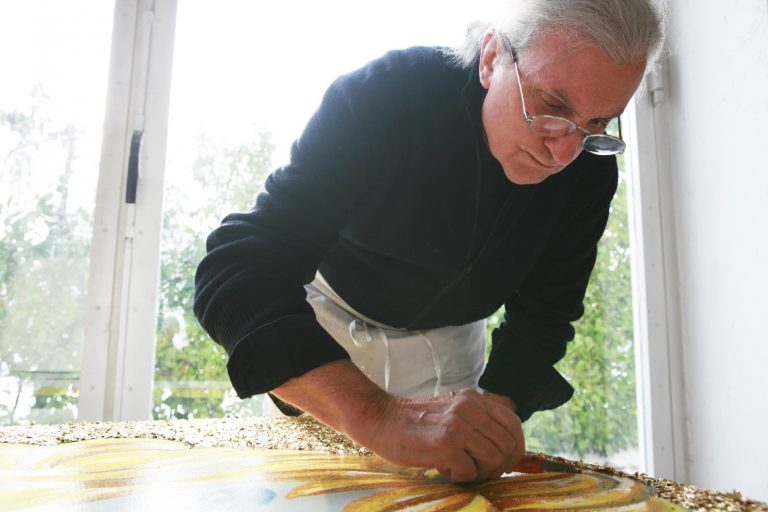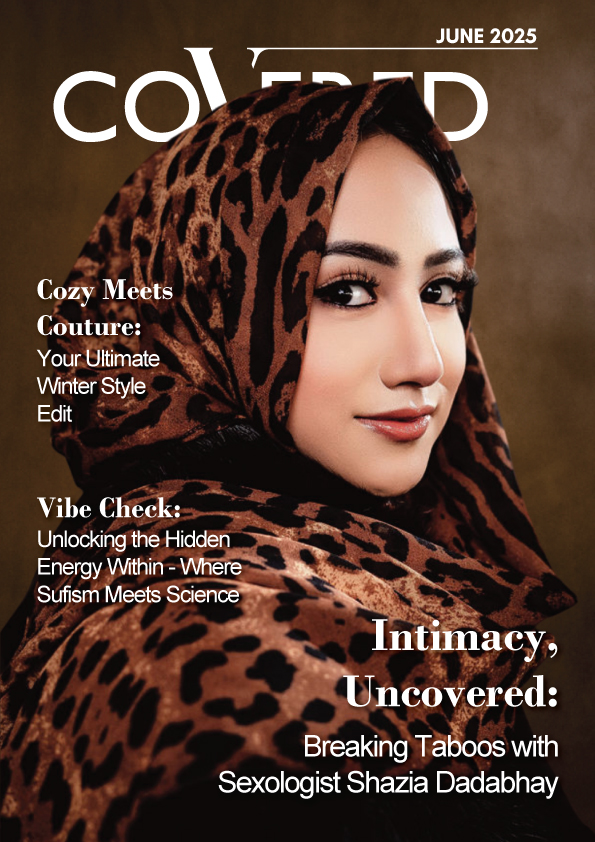
Editor’s Note

Dear Sisters,
Why are you blushing?
As if sex is not a topic to be discussed in Islam! We speak of hijab, of modesty, of marriage contracts and rights—but when it comes to ‘what happens after the nikah is signed’, silence creeps in. And that silence has cost us more than we’re willing to admit.
No, I’m not saying we should make it dinner table conversation. But I am saying this: we need to talk about it. In safe spaces. In sacred circles. With knowledge. With courage. With the intention to heal and empower ourselves—and one another.
Allah (SWT) tells us to seek knowledge. And when it comes to intimacy, pleasure, and our emotional and physical rights as women in marriage, we’ve been kept in the dark far too long. This issue is for the woman who wants more than myths and unspoken rules. It’s for the sister who knows that loving her husband and loving herself are not meant to be at odds.
In the five years I’ve spent helping women connect with their sensual, feminine selves, I thought I’d encounter stories of romance and renewal. And yes, they exist. But what I also found was heartbreaking: fear, guilt, confusion—even trauma. And most of it could’ve been avoided… if we had simply known better. If someone had told us what was *ours*—by right, by design, by Divine wisdom.
Yes, sisters, we have rights in the bedroom. Yes, sensuality can be sacred. Yes, your pleasure is important—not just as an afterthought, but as part of the love and mercy Allah placed between husband and wife. And no—trusting our husbands does *not* mean suffering in silence when things go wrong.
So how do we change the narrative?
We begin by breaking the silence.
This issue is dedicated to you—the woman who wants to live whole, love deeply, and experience the beauty of intimacy as it was always meant to be: joyful, empowering, and deeply connected to who you are, inside and out.
You are not too much. Your needs are not a burden. Your curiosity is not sinful. And your voice? It’s powerful.
Scroll, and let’s begin this journey together—with something soft, insightful, and nourishing for the soul:
“5 Types of Intimacy Every Muslim Woman Deserves”
With love, power, and presence,
May Allah (SWT) forgive me if what I say is incorrect or offensive, as that comes from ego.
Yesmien KT
Editor-in-Chief

Contributions
Disclaimer:
The views and opinions expressed in these articles are those of the author and do not necessarily reflect the official policy or position of Covered Magazine, its team, affiliates, or partners. All content is provided for informational purposes only and should not be taken as professional advice. Covered Magazine and all those associated with it are not liable for any actions taken based on the information presented.
Contents
Intimacy
in Islam
5 Kinds of Intimacy Every Muslim Woman Deserves
(Yes, It’s More Than Just Physical!)
When we hear the word intimacy, it’s easy to think it’s all about physical affection—but real intimacy? It’s so much deeper, softer, and more soulful than that. At its heart, intimacy simply means closeness—and it’s something we all crave and deserve in our relationships. So let’s open up the definition a little. From stolen smiles to shared prayers, here are 5 beautiful kinds of intimacy you can nurture with your partner, rooted in connection, comfort, and just a little sparkle of faith.
1. Emotional Intimacy
“See Me, Hear Me, Hold Me”
This is the kind of intimacy that feels like a deep exhale. It’s being able to say, “Today was hard,” and know you’ll be met with compassion, not fixing. It’s sharing a tear, a laugh, a hope—without fear of judgment.
Try this: Ask each other, “What’s something you need more of this week?” Then actually show up for it.
A gentle reminder: The Prophet (pbuh) was emotionally present and attentive with his wives—sometimes, a soft heart is the strongest kind of love.


2. Spiritual Intimacy
“Our Souls, Aligned”
This is about holding hands and hearts on the path to something higher. Whether you’re making du’a for one another, praying side by side, or just reflecting on life’s purpose over coffee, this kind of intimacy is soul-deep.
Try this: End your day with a shared gratitude list—or a quiet moment to make du’a for each other before sleep.
Whispers of faith can be the most beautiful love language.
3. Intellectual Intimacy
“Let’s Grow Together”
There’s something magnetic about a partner who stimulates your mind. Deep conversations, thoughtful debates, or even nerding out over a shared documentary—it’s all intimacy, too.
Try this: Choose a book to read or a topic to explore together—faith, love, health, dreams—whatever lights you both up.
A woman who feels seen for her mind will open her heart with ease.
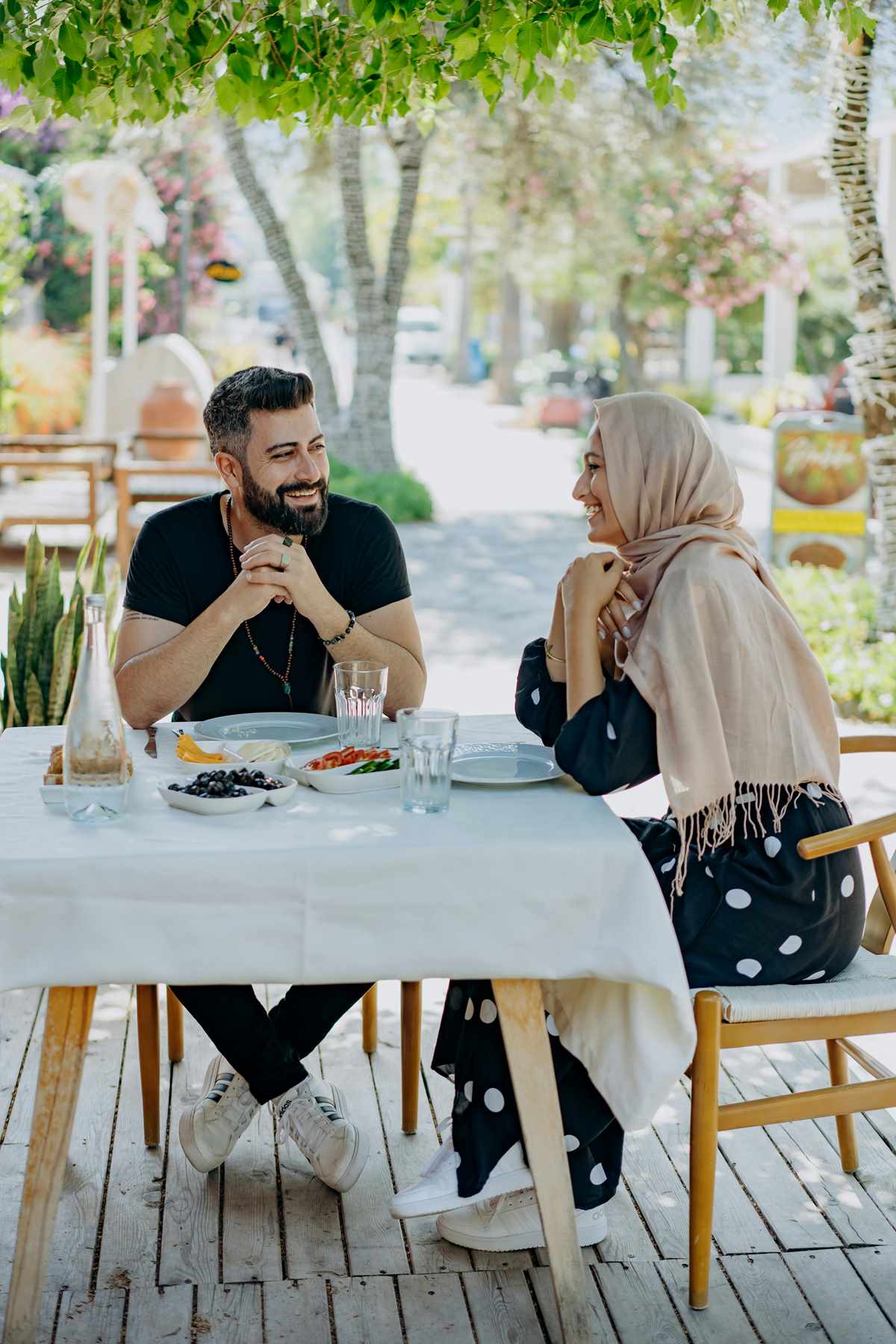
4. Playful Intimacy
“Laughter is a Love Language”
Flirting, teasing, racing down the hallway, laughing until your belly hurts—this is where intimacy feels light, silly, and deeply bonding. You’re not just lovers, you’re best friends too.
Try this: Recreate your first date or plan a surprise indoor picnic with snacks, fairy lights, and a game of “Would You Rather.”
Yes, you can be pious and playful—one doesn’t cancel out the other!


5. Physical Intimacy
“Little Touches, Big Connection”
This goes far beyond romance. A lingering hug in the kitchen. A forehead kiss before Fajr. Holding hands during a walk. Physical connection, even in its smallest forms, creates safety and closeness.
Try this: Be intentional—initiate more soft touches throughout the day. It doesn’t have to be grand to be deeply meaningful.
Your body is an amanah—and so is the comfort you bring to one another.
Intimacy is not a one-note song—it’s a symphony. The more kinds you explore, the richer your relationship becomes. And in a marriage rooted in love, respect, and mercy (rahma), every form of closeness is an act of worship.
Because real love isn’t just felt in the bedroom—it’s felt in the heart, in the soul, in the laughter, and in the quiet moments you never forget.
ANTONIO RIVA MILANO
DEBUTS IN DUBAI
WITH EXCLUSIVE
HAUTE COUTURE SHOWCASE
This May, the storied Italian haute couture house Antonio Riva Milano made an unforgettable entrance into the Middle East with an exclusive debut at Dubai’s Bulgari Hotel Members Lounge Yacht Club. The event, co-hosted with Maison Gemier and Palazzo Eventi, drew an influential crowd including stylist Marco Ferra, World Arabia founder Lara Palmer, and Moroccan royalty Princess Nezha Alaoui. The evening culminated in a gala dinner emceed by celebrated actress and anchor Mahira Abdel Aziz.
At the heart of the presentation was Noor—a capsule collection that gracefully marries Antonio Riva’s signature architectural design language with the elegance of Middle Eastern dress traditions. From flowing abayas and structured kaftans to delicately draped veils and modern shaylas, each piece reimagines heritage through exquisite fabrics like silk twill, organza, mikado, and crepe de chine.
“This event marks more than a showcase, it’s a cultural exchange,” shared Creative Director Antonio Riva. “Dubai’s appreciation for beauty and craftsmanship aligns perfectly with our vision. We’re proud to bring the art of Made in Italy to such a dynamic international stage.”
With Noor, Antonio Riva Milano not only bridges continents but also builds a dialogue between tradition and modernity—celebrating the timeless grace of modest fashion through the lens of haute couture.
The Film They Tried to Silence:
The Encampments Now Streaming on Watermelon+
In an era where student voices are echoing louder than ever, The Encampments arrives as a searing and timely documentary that captures the spirit of resistance sweeping across America’s campuses. From Executive Producer Macklemore and directed by Michael T Workman and Kei Pritsker, this powerful film dives into the heart of a historic movement that began at Columbia University and rapidly spread across the nation in solidarity with Gaza.
Now streaming exclusively on Watermelon+, The Encampments isn’t just a documentary—it’s a front-row seat to a youth-led uprising that challenged institutional power and demanded justice. With raw footage, personal testimonies, and behind-the-scenes access, the film features key voices including detained activist Mahmoud Khalil, journalist Grant Miner, and student leader Bisan Odeh. It also includes a chilling account from a whistleblower inside the university system, exposing the deeper costs of truth-telling in today’s political climate.
For lifestyle readers tuned into culture, social change, and global impact, The Encampments is a must-watch. It’s a film that doesn’t just reflect a moment—it’s part of the movement. Bold, urgent, and unapologetically human, this is the story they didn’t want you to see.
The wait is over. Stream The Encampments now—only on Watermelon+.
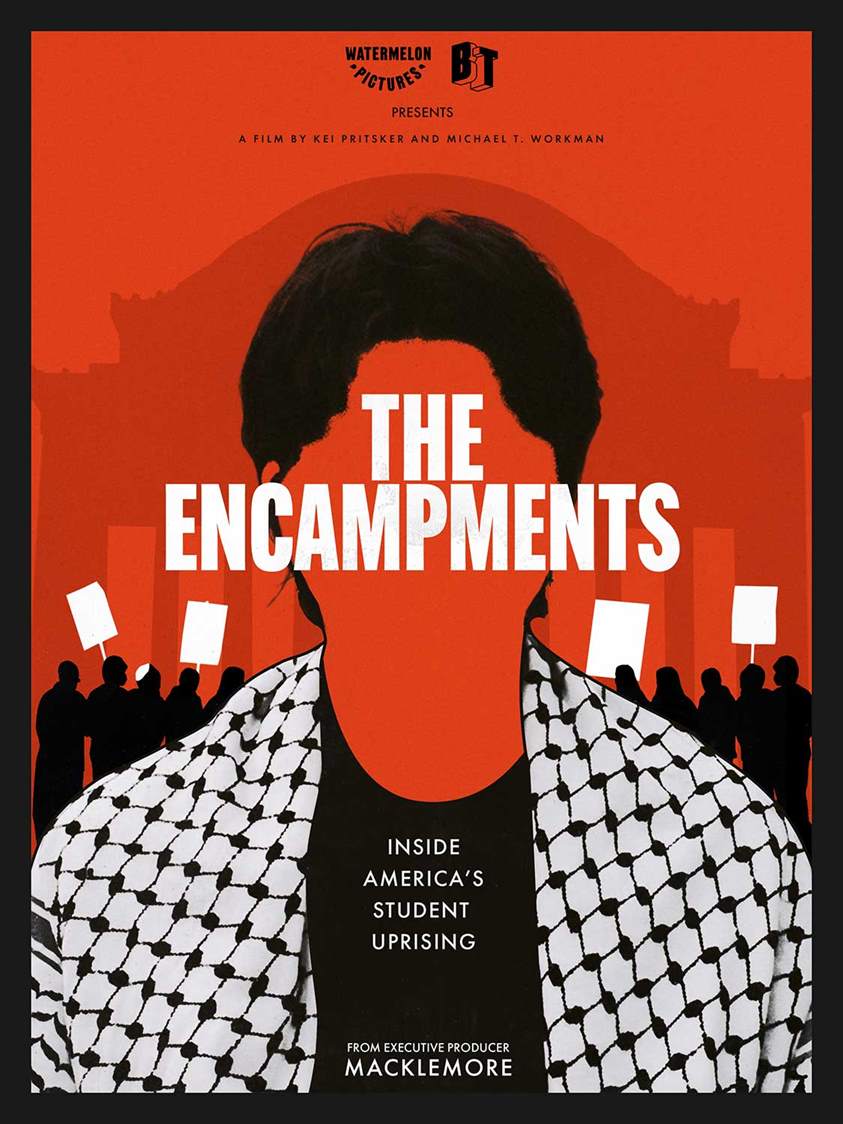
Your Cozy Season Must haves
by Faathima
As the chill sets in, your beauty routine deserves a cozy upgrade.
Winter calls for richer skincare, warm-toned makeup, and comforting fragrances that hug you like your favorite knit.



Skincare:
Swap lightweight formulas for hydrating creams, nourishing oils, and barrier-protecting balms. Look for ingredients like hyaluronic acid, ceramides, and squalene to combat dryness and dullness.
Makeup:
Embrace velvety textures and moody tones, think berry lips, bronzy lids, and radiant highlighters that add life to winter skin. Cream-based products melt into the skin and offer that natural, soft glow.


Fragrance:
Reach for deeper, sensual scents, notes like amber, vanilla, sandalwood, oud, and spices wrap you in warmth and luxury, making every spritz feel like a fireside escape.
Stay glowing, soft, and scented, winter never looked (or smelled) this good.

Love and Loungewear
by nazeefa
Close your eyes and breathe in the frosty air of an upcoming crisp winter, feel its embrace and let it encompass you.
And what are we wearing this season modest girlies?
Loungewear. In its simplest form.

This season is kicking off comfort. Loungewear has been a modest girls dream, and our dreams are trending. So here is your holy grail to loungewear and how we’re claiming it for this winter runway.
Let’s sink into our self-love era by giving our bodies the comfort it deserves. Let’s face it fashion girlies, we are always on superwoman mode but this season is bringing with it a peaceful breeze in mind, body and soul.
You are on the lookout for staple loungewear pieces to wear around the house. But don’t get too comfy now because we’re making it chic! Let’s delve into the perfectly elevated looks these simple outfits can present for all our school runs, grocery runs and all the in-betweens.
What makes you feel good? Some textures have the superpower of making us feel like we’re wrapped in a warm embrace. It might be something woolly, something knitted, a cashmere affair or a luxurious velvet. Those are the textures you’re going to lookout for when adding loungewear pieces to your winter collection. We want to keep this look in all its modest glory, so let us aim for wide legs, longer tops and loose fits. You should also opt for adding in some dress and matching skirt sets as loungewear. This will add variety to your closet and still leave you in a comfy space. Don’t overthink it, some looks are meant to just stay simple. There is no need to colour match, colour block or switch anything up. A simple neutral matching set will do the trick!
Let’s fall into the depths of comfort, cozy and minimal but still a fashion icon.



Stepping out and stepping in to your chic era. Let’s explore the accessories needed to elevate this cozy look and make it runway ready. Throw in a coat, hijab, handbag and a pair of retro shades. You’re going to want to stick to knee to ankle length coats and avoid anything shorter. This will ensure your outfit flows together. When pulling hijabs off their racks, try and aim for either a loungewear or coat shade, keeping it in solid colours. Save those prints for the blooming season! And in keeping with your fashion streak, you want to step into the beautiful winter sun with thin, elongated shades to make a statement.



Last but not least, let’s talk footwear. Pay close attention to this one…
I know you love those fluffy, furry, feathery wonders that wrap your feet in love and consolation, but please do not wear those out!
Keep a pair of sneakers or healed-boots at the door, ready to make your winter debut every time you walk out of the house.

Stay chic, stay warm and most importantly stay in peace and love.
From my heart to yours this winter,
Nazeefa Bhamjee
@nazeefa.bhamjee
Holistic Healing
through Ancient Wisdom
Traditional Chinese Medicine (TCM) and Islamic medicine share a holistic approach to health, emphasizing the balance between body, mind, and spirit (soul). While TCM focuses on concepts like Qi (life energy) and yin-yang balance, using acupuncture, herbs, and dietary therapy. Islamic Medicine, is rooted in the teachings of the Quran and Hadith, with emphasize on the use of prophetic remedies, hygiene, and moderation in all aspects of life. Both traditions rely heavily on natural substances and preventative care. Despite differing cultural and philosophical foundations both aim to restore harmony and promote overall wellness.
Foundation of Holistic Medicine
The origins of TCM can be traced back to early Chinese philosophical concepts such as Yin and Yang, the dual forces of nature that must be balanced for good health. The Five Elements theory, which links bodily systems with natural elements like Wood, Fire, Earth, Metal, and Water. It also lays the groundwork for understanding the body’s energy, or Qi, and how it flows through pathways called meridians.
Islamic Medicine is based on balancing the four humors. Meaning the body is composed of four fundamental fluids namely blood, phlegm, yellow bile, and black bile. The balance of these humors is crucial for maintaining health. Each was associated with a specific temperament (hot/cold, dry/moist). The theory of the four humors was widely accepted and practiced in Islamic medicine for centuries, particularly during the golden age of Islam.
Unlike Western medicine, which often targets specific symptoms or conditions, Both TCM and Islamic Medicine focuses on the body as an interconnected whole, using natural methods to restore harmony.

Core Practices
Traditional Chinese Medicine (TCM) offers a wide range of holistic healing modalities that are designed to treat the body, mind, and spirit as an interconnected whole. Here are a few core TCM-based modalities:

• Herbal medicine remains the cornerstone, of TCM, utilizing herbs and herbal formulas for various health issues. Extensive use of herbs like ginseng, ginger, and liquorice are used in remedies. Similarly, Islamic Medicine relies on natural remedies mentioned in the Hadith, such as black seed (Nigella sativa), honey, and olive oil.
• Dietary Guidelines as prescribed in TCM is based on seasons, body type, and balance of hot/cold nature of foods. Islamic Medicine, emphasizes the Sunnah diet, moderation, and healing foods. The concept of “hot” and “cool” foods in Islamic traditions isn’t about their physical temperature, but rather about they affect the body’s internal balance (like dates which are considered as “hot” because they are believed to be energy-boosting and warm effect on the body, honey is considered as “cool”, and vinegar is considered to have a cooling effect on the body).
• Cupping, the use of suction cups on the skin to promote blood flow, reduce muscle tension, and draw out toxins. Types of cupping include fire cupping, dry cupping, and wet cupping (includes minor bleeding). The Islamic Medicine practice that is the same is known as hijama.
• Traditional Diagnostics – In TCM this would be the use of pulse diagnosis, tongue inspection, and the observation of symptoms. Tongue and Pulse Diagnosis, is a diagnostic method, not a treatment. Islamic Medicine used similar empirical techniques including pulse reading, urine analysis, and observation.
• Acupuncture perhaps the most globally recognized TCM practice, involves inserting thin needles into specific points on the body to regulate the flow of energy (Qi) and stimulate healing.
• Spiritual Component In TCM this would include meditation, Tai Chi, and Qigong to align the spirit and body. Islamic Medicine integrates prayer (du’a), trust in God (tawakkul), and spiritual purity in the healing process.
Modern Relevance
Islamic Medicine (Tibb) and TCM continues to hold relevance in modern times due to its holistic approach to healing. It is practiced worldwide and often integrated with Western medicine. In essence, the wisdom in ancient medicine represents more than a set of treatments, it is a philosophy of balance, mindfulness, and respect for the body’s natural rhythms.

A happy mind is medicine, there’s no better prescription.
Vibe Check: Unlocking the Hidden Energy Within
Where Sufism Meets Science
Vibe Check: What Science & Sufism Say About Your Body’s Energy
Ever walk into a room and feel the energy? Or wake up knowing your vibe’s a little… off? It’s not just in your head—your body actually runs on frequency and vibration. Think of yourself like a walking, talking energy playlist. And the goal? Stay in tune.

Your Body Is Basically a Vibe Machine
Science shows that a healthy human body hums at 62–70 MHz. Drop below that, and you might start feeling sluggish, anxious, or under the weather. Each organ has its own rhythm, and when you’re aligned, life just flows.
What Tesla and the Sufis Agree On
Nikola Tesla, the ultimate science genius, said the secrets of the universe are found in energy, frequency, and vibration. Now, take that idea and pair it with Sufi wisdom: there’s a cosmic energy source called the Ocean of Power—a never-ending stream of divine energy. And guess what? You’re totally wired to tap in.
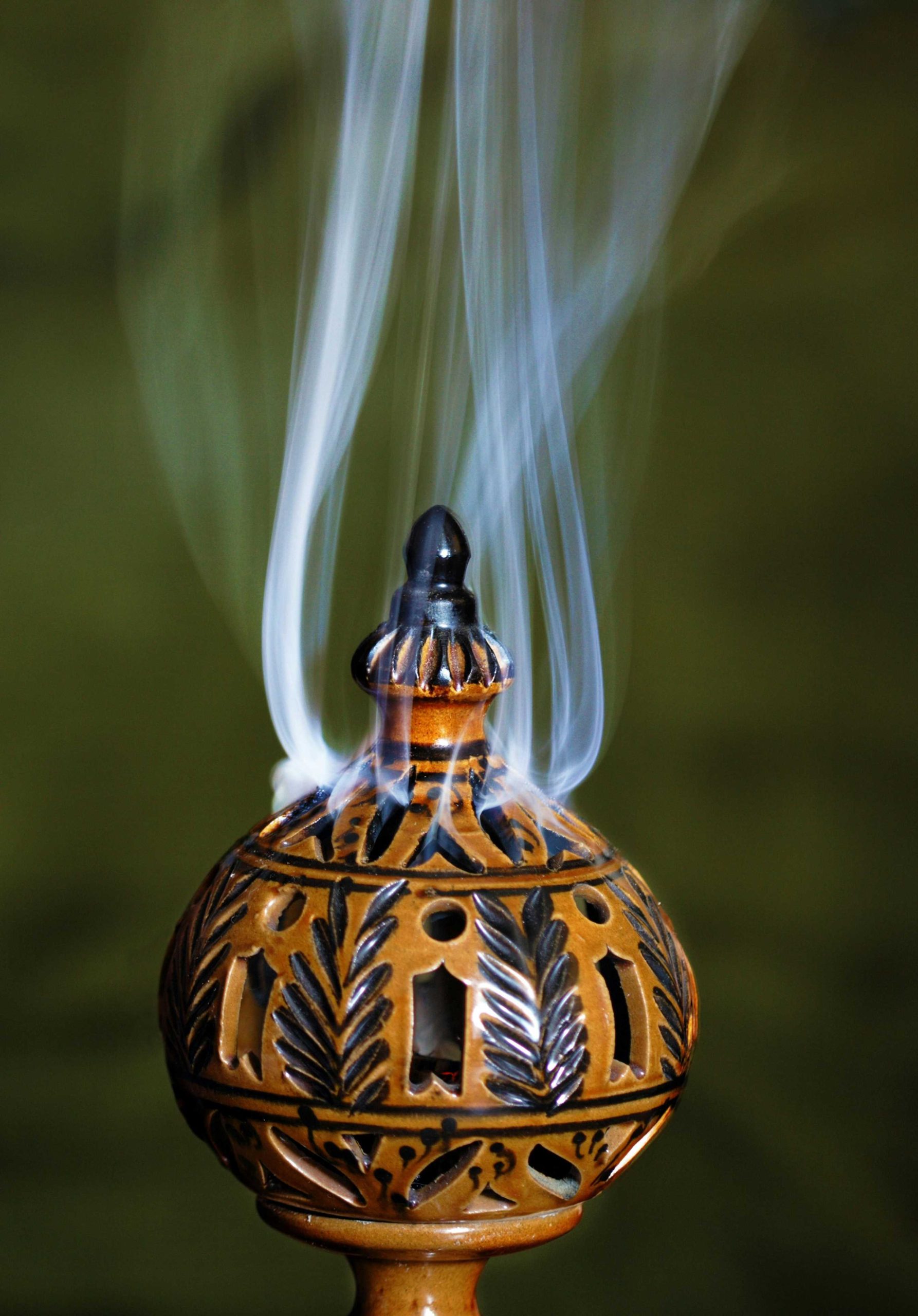
But this journey isn’t hers alone. Family is at the core of TMR, with her loved ones forming the backbone of the brand’s team. Her inspiration? Women who juggle multiple roles—mothers, entrepreneurs, dreamers—who embrace life with grace and resilience.
Tuning In Through Dhikr
In Sufism, one of the most beautiful ways to align with this divine energy is through Dhikr—the spiritual practice of remembering God by repeating sacred words or names. It’s like giving your soul a sound bath. Dhikr clears emotional static, lifts your energy, and opens your heart to peace and divine connection.
You can whisper it, sing it softly, or even repeat it silently in your heart. The key? Be present. Even a few minutes a day can raise your frequency like nothing else.
How to Raise Your Frequency.
Practice Dhikr daily—even while doing dishes or walking.
Ground yourself in nature—earth energy is real.
Keep your space high-vibe with things you love (calming colors).
Surround yourself with positive, intentional people.
Rest and nourish your body—your energy depends on it.




So, What’s the Real Vibe?
You’re more than muscles and bones—you’re energy in motion. And when you consciously raise your frequency through sacred practices like Dhikr, you’re not just surviving. You’re glowing.
So next time life gets a bit chaotic, pause and remember: even your soul has a soundtrack—and Dhikr is the remix you didn’t know you needed.
Article inspired by Shaykh Nurjan Mirahmadi
Intimacy, Uncovered:
Breaking Taboos with Sexologist Shazia Dadabhay
By Farah Sheik
The gentle morning light filters through the window as we settle into conversation. There’s a grounded warmth in Shazia Dadabhay’s presence — the kind that puts you at ease while inviting honest reflection. A sexologist, intimacy coach, and breath-work practitioner based in Johannesburg, she approaches sexuality not as something to master, but something to explore.
As a Muslim woman of colour working in a field often marked by taboo and silence, Shazia merges psychological insight with cultural sensitivity — offering her clients a space where pleasure becomes a right, not a privilege.
In this interview, we speak openly about the questions many want to ask but are often afraid to voice — while tracing the path that led Shazia to this work rooted in curiosity, compassion, and a radical belief in connection.
You’re a sexologist and intimacy coach — something not many people expect to hear from a woman in modest circles. Can you tell us what drew you to this path?
I get that reaction a lot! But honestly, it all started with my own questions. I grew up in a community where we just didn’t talk about sex — not in an honest or healthy way. There were these silences that made it feel like sexuality was something to be ashamed of. And at the same time, I could see how much people were suffering because of that lack of conversation — struggling in relationships, with self-worth, with intimacy. I wanted to learn more, not just for myself but so I could support others. Studying psychology gave me the foundation, and then I started focusing on sexuality and breath work. It became clear to me that healing in this area could unlock so much more — confidence, joy, emotional safety.


How does your work differ from what people might expect when they hear the word “sexologist”?
People often think a sexologist’s job is all about technique or performance, but my work is really about presence — being fully in your body, connected to yourself and your partner. I work with women and couples who are carrying trauma, shame, or religious guilt. It’s about gently unpacking those layers, not shattering them. My sessions are trauma-informed, which means we go at the client’s pace. I use a lot of breath work, mindfulness, and body-based practices to help people feel safe again in their own skin. For many women, especially in modest communities, it’s the first time they’re given permission to even think of themselves as sexual beings — not for someone else, but for themselves.
That’s powerful. It’s not often we hear pleasure framed as something women ‘deserve’, especially in conservative or religious circles.
Exactly. And that’s why I always say: your body is not a burden, it’s not something to just hand over — it’s *yours*. Islam, in its essence, honours that. There’s a lot of mercy and beauty in the way it speaks about desire and intimacy — but unfortunately, culture has often clouded that message. Many of the women I work with are mothers, wives, professionals — they’re “doing everything right,” but they still feel disconnected from their bodies, their pleasure, their partners. And often, they’ve never been told that it’s okay — even sacred — to enjoy intimacy. I want to shift that. Because when women feel safe in their bodies, the ripple effect is massive. It changes how they parent, how they love, how they lead.
What’s something you wish more people understood about sexuality, especially within Muslim or modest communities?
That it’s not dirty. That curiosity isn’t sinful. That pleasure isn’t dangerous. I think we’ve confused modesty with silence, and those are not the same thing. You can be modest and deeply connected to your sexuality. You can be faithful and also fulfilled. It’s not either-or. I wish more people knew that sexuality is a spectrum — not of orientation, but of experience. It can include grief, tenderness, healing, power, vulnerability. It’s not about perfection or performance; it’s about connection — first with yourself, then with others.
Let’s talk about breath work. How does that tie into intimacy?
Breath work is the bridge between the body and the nervous system. When we’re anxious, holding trauma, or even just overwhelmed, the breath becomes shallow — and so does our connection to sensation. By learning to breathe deeply and consciously, you shift out of survival mode and into a state where you can actually feel pleasure, safety, and presence. Many women I work with have been taught to disconnect from their bodies. Breath work is one way to come back — to soften, to listen. It’s incredibly empowering.

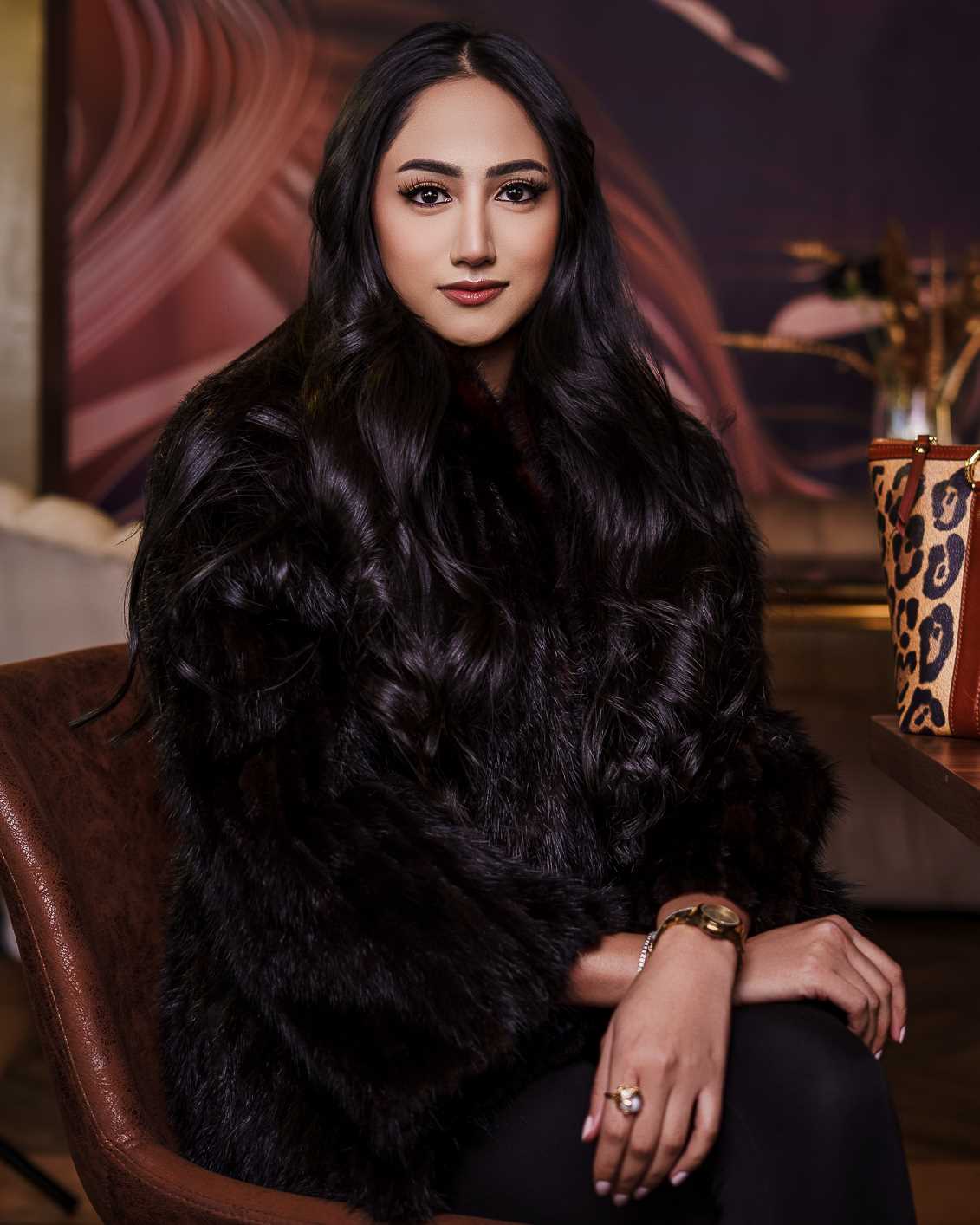
What do you say to women who want to explore this work but feel afraid of judgement?
First, I see you. That fear is valid. But your healing doesn’t require anyone else’s permission. You don’t need to shout it from the rooftops — you can do this work quietly, safely, in a space that honours your values. I always remind my clients that seeking support isn’t shameful — it’s sacred. Especially in spaces where we’ve been told to shrink ourselves, choosing to reclaim your body and your story is a radical act of self-love.
You often work with couples. What’s one pattern you notice that tends to block intimacy?
Unspoken resentment. It’s like poison in the relationship. You can be physically close, but if there’s emotional distance — if one or both partners feel unseen or unheard — intimacy becomes performative, not connective. That’s why I integrate communication coaching into my sessions. People need to learn how to speak from the heart without blame or fear. It’s not just about “fixing the sex” — it’s about building safety, trust, and emotional intimacy. Once that’s in place, the physical part usually follows.
What’s your hope for women who encounter your work?
That they realise they are whole. That nothing about their desires, their pain, or their curiosity is wrong. I want them to feel empowered, not ashamed — to know that pleasure isn’t something you earn by being “good enough.” It’s part of your design.
And most importantly, I want women to reconnect with softness — not as weakness, but as wisdom. We live in a world that praises hustle and hardness, but healing happens in the soft, slow spaces.

Last question. If someone is reading this and feels a pull toward exploring their own healing in this area — where should they begin?
Start with your breath. Notice how you’re holding your body. Is your jaw tight? Are your shoulders tense? Soften. Inhale, exhale. Let that be your first act of intimacy — with yourself. And then find safe spaces. That could be with a coach, a therapist, a community that respects your values. You don’t have to do this alone. Healing is not linear, but it is possible — and it’s so worth it.
Thank you, Shazia. For your wisdom, your gentleness, and your bravery.
Thank you for holding space for this conversation. We need more of them — especially in spaces like this.
Connect with Shazia:
Instagram: [@shaziadadabhay](https://www.instagram.com/shaziadadabhay)
Website: [shaziadadabhay.com](https://www.shaziadadabhay.com)
R A E E S A H™
Modesty Woven
with Intention
Affordable Luxury. Timeless Modesty. For Every Woman.
In a world where fashion often chases the next trend, R A E E S A H™ stands firm in its philosophy: modesty is timeless. This South African-born brand is redefining modestwear with a refreshing sense of clarity — blending effortless elegance, comfort, and accessibility.
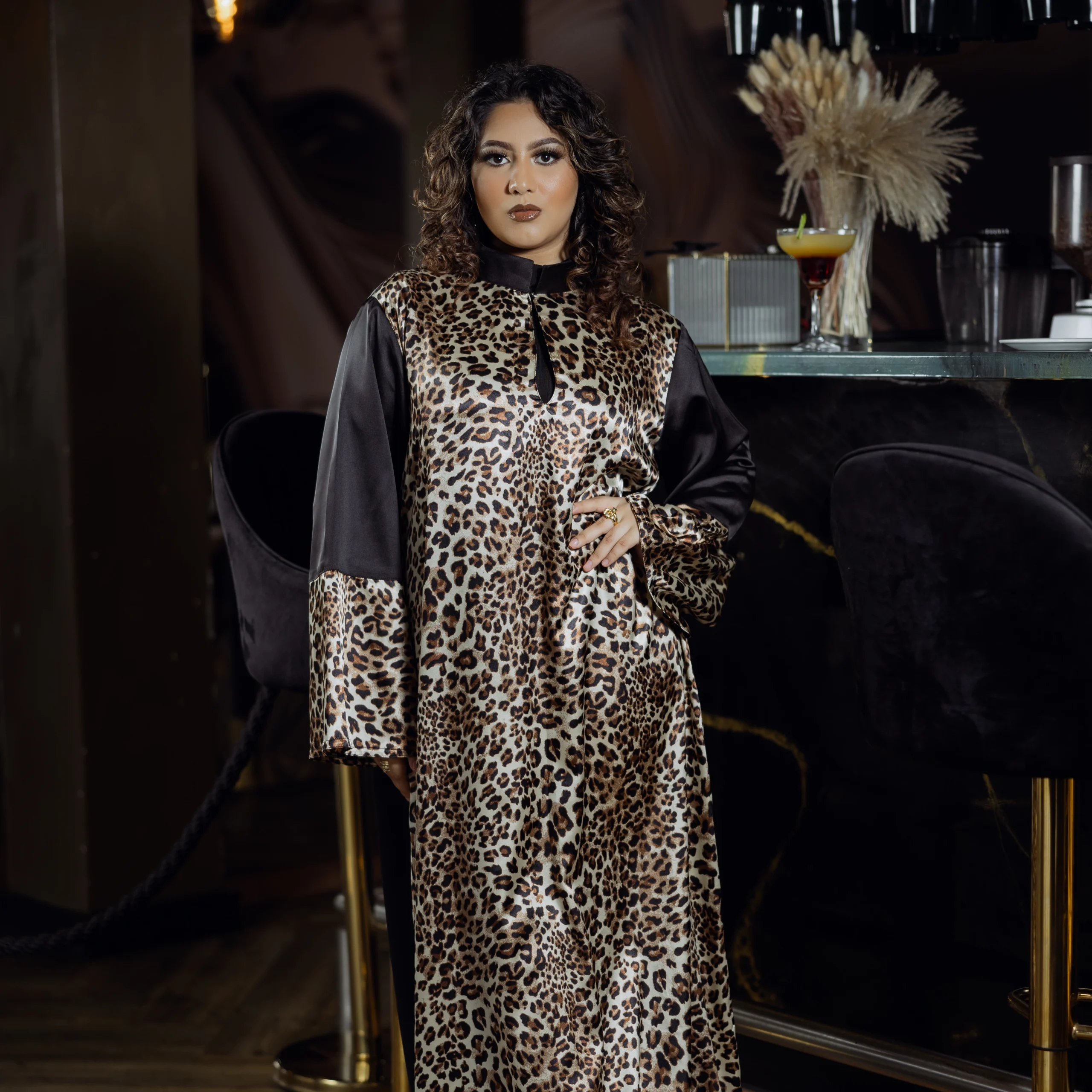

Crafted for women of all backgrounds, R A E E S A H™ offers a wardrobe that supports personal expression — whether worn for faith, fashion, or simply the joy of dressing with intention. Its collections feature:
Elegant abayas that combine fluid lines with refined detail
Versatile dresses for everyday wear and special occasions
Coordinated sets that simplify styling without compromising on grace
Occasion wear rooted in classic silhouettes and contemporary flair
Each piece is designed to empower women through simplicity — where every thread whispers luxury, and every cut speaks confidence.

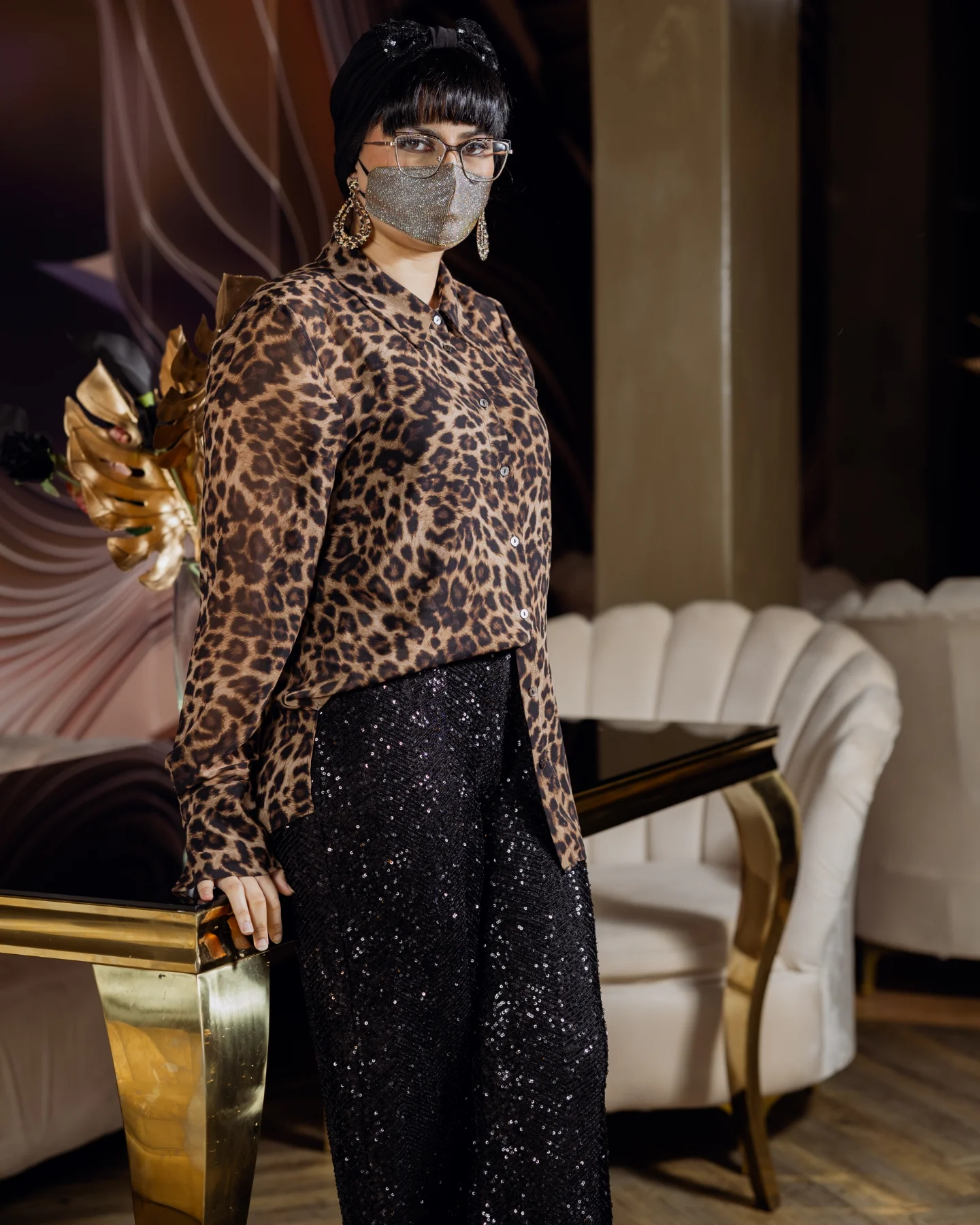
But what truly sets R A E E S A H™ apart is its unwavering commitment to inclusivity and soulful design. This isn’t just modest wear — it’s a movement of grace that transcends trend.
“Our goal is to honour modesty in a way that feels powerful, personal, and beautiful — for every woman.”
Whether you’re stepping into a boardroom, attending a celebration, or simply running errands,
R A E E S A H™ offers pieces that meet you where you are — stylishly, comfortably, and modestly.
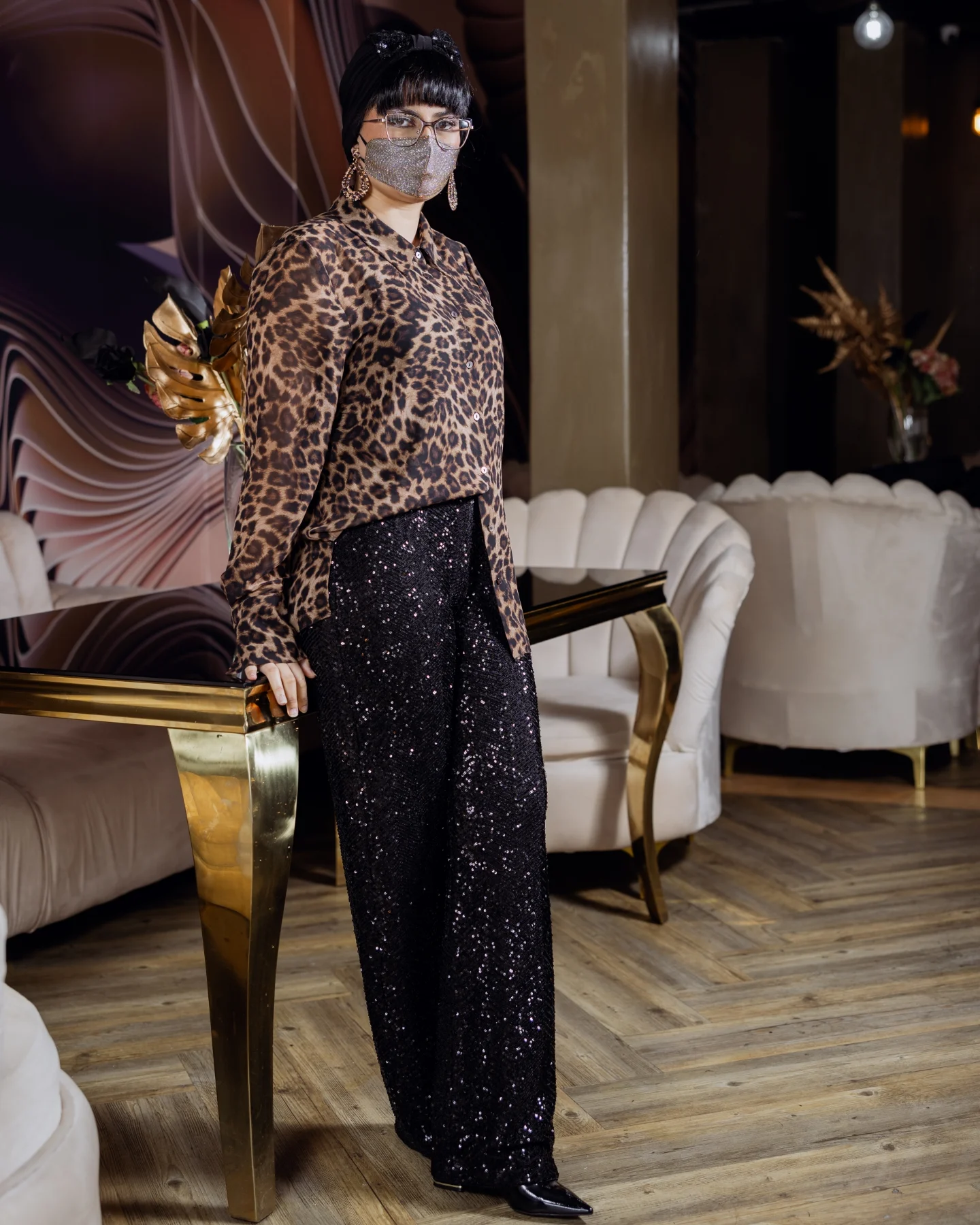

Connect with the brand:
Instagram & TikTok: @raeesahmodestwear
WhatsApp: +27 82 329 3259
Email: raeesah.kolia@gmail.com
Golden Goose Unveils “Altered States”
by Marco Brambillaat HAUS During Venice Architecture Biennale 2025
To mark the opening of the 2025 Venice Architecture Biennale, Golden Goose introduced a bold new chapter in immersive art with “Altered States” by celebrated visual artist Marco Brambilla.
Hosted at HAUS in Marghera—Golden Goose’s creative hub and cultural platform—the exhibition transformed industrial space into a surreal dreamscape, where the lines between film, fantasy, and reality dissolved.
Brambilla, known for his visionary use of digital collage, video, and virtual reality, presented his first major show in Italy with this multisensory journey. Curated by Jérôme Sans, Altered States explored cinema as a portal to the subconscious, inviting visitors to lose themselves in hypnotic visuals and layered soundscapes. The result was an experience that reimagined how media shapes memory, perception, and desire.
More than just an exhibition, the event reflected HAUS’s mission to be a meeting ground for creativity, culture, and community. Visitors were welcomed into a space where craftsmanship meets conceptual art—a place that challenges boundaries and nurtures expression across generations and disciplines.
As part of HAUS Week on May 10–11, the venue opened its doors to the public for a series of performances, workshops, and talks. These community-centered events highlighted the connection between art, sneakers, sport, and storytelling—reinforcing the brand’s commitment to local engagement and global dialogue.
For those seeking a space where dreams, technology, and culture meet, Altered States at HAUS offered a powerful glimpse into the future of artistic experience.
Mozar Winter Hijab Style
Step-by-Step Guide
Beanie hijab style How to Style Your Beanie Hijab by Mozar Designs

Step 1:
Begin by wearing a full-coverage ninja undercap to ensure a secure and smooth base.
Step 2:
Place your hijab on your head, leaving one side short and the other side long.
Step 3:
Pin the short side securely to your undercap near your ear to hold it in place.
Step 4:
Drape the longer side loosely over your head and pin it at the side for a soft, effortless look.
Step 5:
Finish the look by wearing your Mozar Designs beanie over the hijab. Adjust as needed for comfort and style.


Neighbour law
a legal & Islamic perspective..
by Mariam E Teladia
One of the most important guidelines of the of Islam is to promote love and cooperation, good behaviour, openness, generosity and benevolence and solidarity in order to realize interests and benefits and prevent corruption and losses towards neighbours.
In observing the rights of neighbour,
it is not enough for a Muslim person that he does not bother his neighbour and does not cause them any trouble, but it is necessary that he does not skimp on any kind of help and assistance with his material and spiritual strength.
Under South African law, the regulation of disputes between neighbours is undergirded by the reasonableness standard. It is trite that landowners have the right to the uninterrupted use and enjoyment of their property, subject to any limitations imposed by the common law and legislation.
At the same time, every landowner bears a reciprocal duty to refrain from conduct that may unreasonably interfere with their neighbour’s right to use and enjoy their property.
Consequently, a landowner is entitled to plant trees on their property, subject to any statutory restrictions contained under environmental legislation such as a prohibition on planting alien vegetation. However, a property owner also bears a corresponding duty to ensure that their trees do not cause a nuisance. To that end, a specific use of property will constitute an actionable nuisance if it ‘exceeds the level of what neighbours could reasonably be expected to tolerate.

Generally, it is not reasonable to expect your neighbour to prevent falling leaves irrespective of how inconvenient this may be. Given increasing rates of urbanisation and population growth, neighbouring landowners and occupants are expected to endure activities which constitute a reasonable and lawful use of property.

Planting trees for shade, privacy, fruit, or aesthetic purposes is a presumptively reasonable use of one’s property. Ultimately, any potential damage to gutters or drains caused by falling leaves may be prevented through regular sweeping, and is thus not actionable.
Overhanging branches, however, may constitute a nuisance. To avoid needless conflict, you are advised to calmly and respectfully approach your neighbour and request that they trim the branches encroaching on your property. If they fail to do so within a reasonable timeframe, you have three possible options.
Prune the branches yourself, with no intention of repayment, out of good will. Secondly prune and claim the cost of removal from the landowner, the last option would be to apply to court for a mandatory interdict compelling removal. Depending on the severity of the encroachment, you may also apply for an interdict to prohibit and prevent future encroachments. Predictably, these instances are rare.
To mitigate any damage to your paving or piping caused by encroaching roots, you may legally remove the roots encroaching on your property. If this fails, you could approach a court to order your neighbour to cut down the offending trees and simultaneously request compensation for any damages incurred. In adjudicating the matter, the court will consider whether a reasonable person in your position would be expected to tolerate the interference by balancing your interests against those of your neighbour. Importantly, the courts are usually reluctant to order the removal of trees where less drastic measures, such as the appointment of a specialist arborist, are available.
From an Islamic perspective, we look towards the teachings of our beloved Prophet, peace be upon him, who has said: ‘Whoever believes in Allah and the Last Day should honour his neighbour.’ Bukhari.
The Messenger of Allah has also explained as narrated from Abu Hurayrah that the Prophet (peace of Allah be upon him) said: “Whoever believes in Allah and the Last Day, let him not annoy his neighbour” Bukhari and Muslim.
According to the teachings of Islam, one of the etiquettes of being a neighbour is not only not to hurt your neighbour, but if you see resentment and slippage from your neighbour, you should forgive and be patient.
If a Muslim is afflicted by a bad neighbour, let him be patient with him, for his patience will be the reason for his salvation from him.

From the totality of what was said, the importance of neighbourliness and its place and dignity in Islam was clarified and it became clear that the happiness of this world and the hereafter, and the peace of this world and his happiness in the hereafter depend on things, one of which is good neighbourliness and having a good neighbour.
Having a good neighbour is a valuable blessing for a person and being a good neighbour is a source of love and friendship. Hearts always find a place where goodness and kindness prevail, and wherever there is the nectar of goodness, people gather. The role of good behaviour and good morals in the neighbourhood is very effective in creating affection and love between neighbours.
Sometimes it is necessary to bear the hardships and incompatibilities of neighbours for good neighbourliness. If we want our relationship not to fall apart, we should be patient and bear and not return evil with evil.
Greeting, taking care of, helping, visiting, giving and alms, meeting the need and sympathy, among the duties that are the responsibility of the neighbour and also a sign of chivalry and philanthropy. All this strengthens friendship and love and strengthens social relations and the trust and confidence of
neighbours. Thus we will Insha’Allah contribute towards build a strong society and uplift the unity and love in our Ummah and further invite our Non-Muslim neighbours towards the beauty of Islamic teachings and practices. Insha’Allah.
Raeesah
The Designer Behind the Mask
At the helm of R A E E S A H™ is visionary founder Raeesah — known for her luxurious modestwear, timeless silhouettes, and the signature mask that defines her public image. Far from a trend, the mask is a bold creative symbol — a quiet rebellion against image-driven culture and a reflection of her values: elegance, privacy, and purpose.
“It’s not about hiding,” she says. “It’s about letting the art speak louder than the artist.”
Commanding presence through grace, not exposure, Raeesah redefines visibility on her own terms. In every thread of her brand is quiet power — reshaping what it means to be seen and respected in fashion.
We sat down with the modesty advocate and creative soul to explore the heart behind
R A E E S A H™ — a brand built on intention, elegance, and timeless design and this is what she had to say…

1. Fashion is ever-changing. What was your “I have to do this” moment that pulled you into the industry?
I’m a self-made fashion designer with a background in Italian dressmaking—a path I pursued despite many challenges along the way. From a young age, I’ve had a deeply creative nature and a love for design. Fashion became a natural extension of that creativity. It wasn’t just about clothing—it was about storytelling through style. That passion, combined with resilience, is what drew me into the industry and continues to fuel my journey today.
2. Have you ever had a fashion fail in your early days that you now laugh about, but learned a big lesson from?
To be honest, I haven’t had a major fashion fail—mainly because I approach each design with care and a willingness to grow. Every piece I’ve created has taught me something, whether it was refining fit, improving communication, or enhancing technique. I see those small lessons not as failures, but as stepping stones that shaped my journey as a designer.

3. How do you stay true to your brand while keeping up with trends and customers’ expectations?
I stay rooted in my brand’s core identity: modesty, elegance, and modern femininity. While I do keep an eye on trends, I’m selective about what I incorporate. It’s about staying relevant without compromising authenticity. Listening to my customers, understanding their values, and translating that into designs that reflect both style and substance has been key.
4. What would you say to young women dreaming of launching their own fashion label but feel overwhelmed by the business side of things?
Start small, stay focused, and don’t wait for perfection. Learn as you go, and don’t be afraid to ask for help or mentorship. Passion will get you started, but discipline and persistence will carry you through. Trust your vision, be willing to adapt, and remember that every successful brand started with a single idea and a brave decision to begin.
5. You’re known for your signature face mask — a bold and unique choice. What inspired you to make it part of your identity as a designer?
For me, the mask is less about hiding and more about creating a sense of quiet mystique. It aligns with my philosophy of letting the work speak for itself. In a world where visibility often equates to constant exposure, I’ve chosen a different kind of presence — one that’s intentional, elegant, and true to the values of modesty I champion through my designs. It’s a creative statement as much as a personal boundary — a way to preserve a bit of privacy while still fully engaging with my audience and staying authentic to who I am. It’s become part of my signature — and, in many ways, it reflects the spirit of R A E E S A H™: refined, confident, and purposefully different.
From Passion to Plate
Aseema Kazi’s Flavorful Journey with Baluchi
Aseema Kazi Founder of Baluchi: A Culinary Journey Rooted in Heritage and Heart
Winter calls for richer skincare, warm-toned makeup, and comforting fragrances that hug you like your favorite knit.
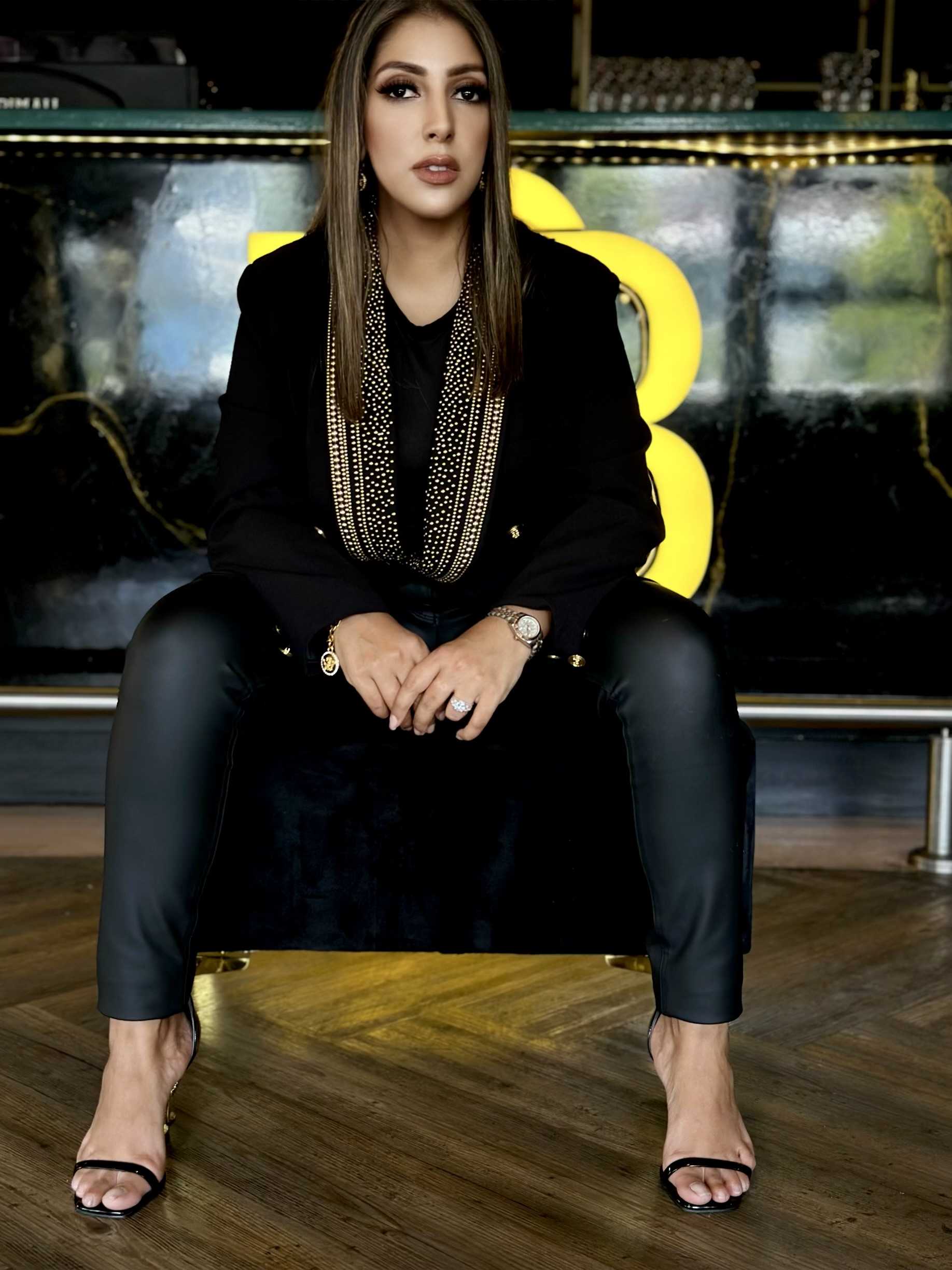
Baluchi is not just a restaurant—it’s a reflection of founder Aseema Kazi’s deep-rooted cultural pride and her belief in the power of food to connect, comfort, and inspire. Since its inception in 2019, what started as a creative culinary outlet has grown into a thriving brand known for its authenticity, innovation, and soul. Guided by a deep sense of purpose, Aseema has turned her love for food into a platform that celebrates tradition while embracing modern tastes. Her journey reflects a harmonious balance of entrepreneurial vision, cultural expression, and a strong commitment to empowering women in business. Through Baluchi, she invites others to share in a story that’s as flavorful and fulfilling as the dishes she creates.
1. What inspired you to open your own restaurant, and how did your personal journey shape the concept behind it?
What began as a passion project in 2019 has evolved into a renowned brand encompassing several ventures under the Baluchi umbrella: Baluchi Restaurant, Baluchi Grillhouse, Baluchi Fit (offering customized healthy meal preps), Baluchi Bespoke Catering & Culinary Designing, and Baluchi Events. My love language has always been food, and in our culture, food is the ultimate expression of love and care. Through the language of food, I find nourishment in different forms, allowing me to express my love and connect with others on a deeper level.
2. How do you balance the demands of running a restaurant with your personal life, and what self-care rituals keep you grounded?
Family always comes first for me, but I’m also blessed with a strong support system and an amazing partner. I often juggle many balls in the air, but I make it work. I don’t believe you should stop living because you have children or are married. I’m a firm believer that everyone should fit into your lifestyle. I’m an extremely dedicated mother, but I also strive to balance that with pursuing my professional dreams and aspirations. Self-care is key to staying focused and grounded. Prayer is my sanctuary; it gives me immense peace and helps me maintain my mental health. I also find exercising very de-stressing, and when time allows, I truly enjoy a relaxing spa day.
3. In what ways do you bring your cultural background or family traditions into the dishes you serve?
My rich cultural heritage is beautifully reflected in Baluchi Restaurant, which primarily features Indian cuisine. Most of the dishes have been created by me personally. I want every customer to feel like they are enjoying a wholesome, home-cooked meal—not something commercialized. That sense of authenticity and comfort is at the heart of everything we serve.


4. What challenges have you faced as a woman in the restaurant industry, and how have you overcome them?
The hospitality industry is incredibly demanding, and as a woman, it often takes even more effort to get your voice heard. I’m one of the biggest advocates for women empowerment, and unfortunately, I’ve found that some of my toughest critics have been women. I’ve learned that you won’t be everyone’s cup of tea—and that’s okay. I try to stay focused on my goals and not lose sight of them, no matter how challenging the journey becomes.
5. What advice would you give to other women who dream of starting their own business—whether in food or another industry?
Far too many women dim their light so that others can shine. My advice is: be your authentic self in whatever you choose to do. Be passionate, be driven, and never wait for the next best thing to happen. Work tirelessly to turn your dreams into reality. Be purposeful about who you are and what you do. Let there be value in your work, and strive to make a positive impact in the lives of others.
Concrete Lands in the UAE:
Where Modesty Meets Modern Elegance
Egypt’s beloved fashion house Concrete has officially arrived in the UAE, bringing its refined, contemporary aesthetic to Reem Mall, Abu Dhabi, and online at concrete.store.
Known for timeless silhouettes and quiet sophistication, Concrete offers menswear, womenswear, and kidswear—crafted to complement every stage of life. The collections move seamlessly between casual and formal, all while embracing thoughtful design and versatility.
In celebration of its regional debut, Concrete has unveiled a special womenswear capsule as part of its Spring/Summer 2025 collection. Expect breathable Egyptian cotton, flowing silhouettes, and a color palette inspired by nature—ideal for women who appreciate modesty, movement, and elegance.
“Our collections are thoughtfully crafted to complement each other,” says COO Matteo Zappalà. “Vibrant earthy tones and ambient colours dance together in flowing fabrics, showcasing beauty, softness, and charm.”
Drawing influence from Italian tailoring and staying true to its Egyptian roots, Concrete presents a new standard in accessible luxury—offering pieces that are both globally stylish and culturally resonant.


With a deep respect for authenticity and modern living, Concrete speaks to the woman who values substance over spectacle. This is fashion for real life—elegant, wearable, and built to last.
Now open at Reem Mall and online across the region.
Discover more at concrete.store
Follow: @concrete_official

Contact Us
Fashion Foresight FZ LLC
HaiD3, Dubai
+971 56 6408959
HEAD OFFICE
Covered Magazine
10 Cinderella Street, Florida
Johannesburg
2092
South Africa
Tel: +27 82 448 8651
Fax: +27 11 837 9808
Business Hours
Monday – Friday 08:00am To 17:00pm
Saturday 08:00am To 13:00pm

























































































